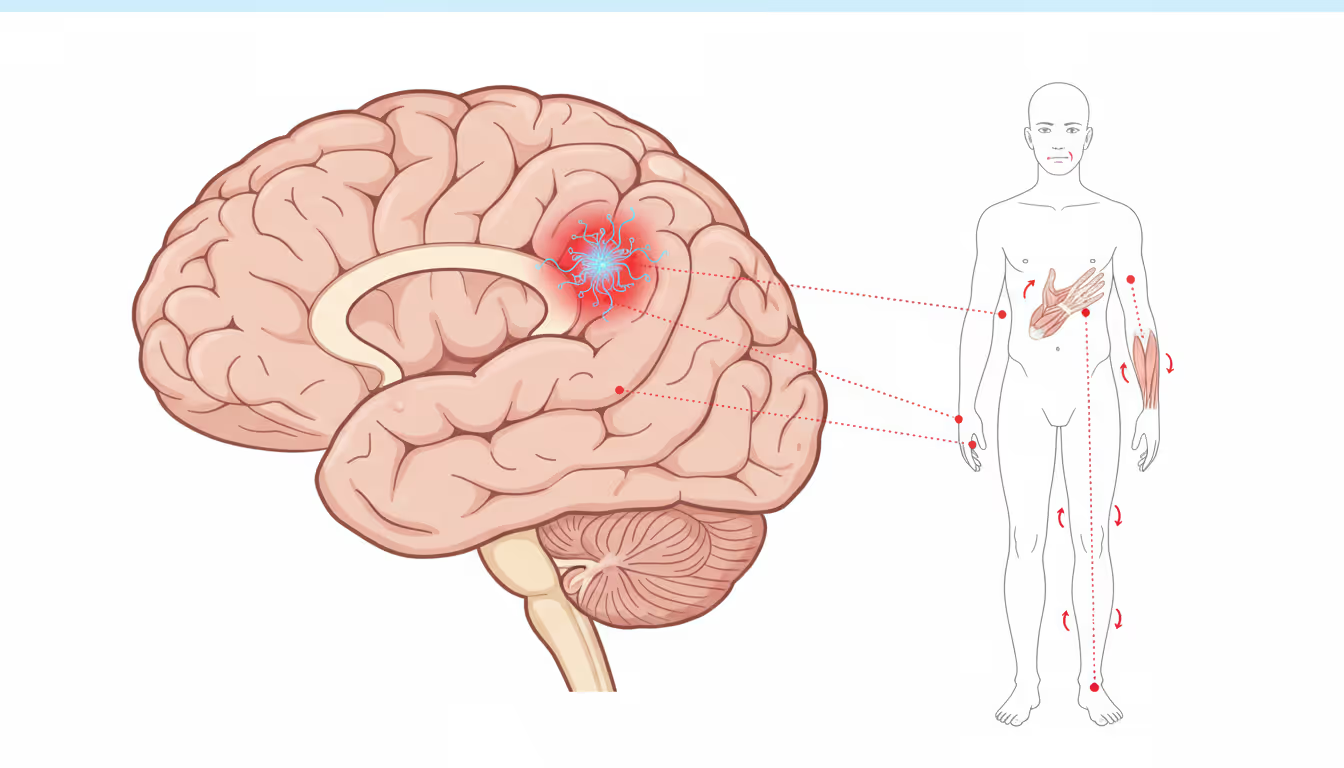
Jacksonian seizures are a type of seizure characterized by brief changes in movement, sensation, or nerve function due to abnormal electrical activity confined to a specific area of the brain. These seizures fall under the category of simple complex seizures, with the electrical disturbances restricted to one region. Typically, they do not affect awareness or alertness and are short-lived. The manifestations of Jacksonian seizures are diverse and can include seemingly intentional actions such as head turning, eye movements, lip smacking, mouth movements, drooling, rhythmic muscle contractions in certain body parts, unusual numbness, tingling, and a sensation akin to crawling on the skin.The term "Jacksonian seizures" honors the English neurologist John Hughlings Jackson, who extensively studied speech disorders related to brain conditions and pinpointed the brain's speech center, known as "Broca's center." In 1863, he first described these seizures, and by 1875, he identified the brain regions responsible for them. Jackson is regarded as one of the eminent figures in 19th-century medicine, at a time when the field saw very few women practitioners.




